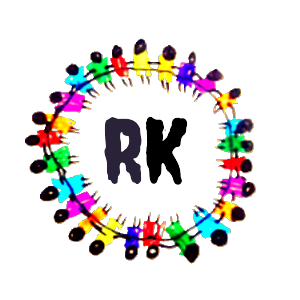Objective:
This lesson will help you understand what Java is, why it’s popular, how it works, and what you need to start learning it.
1. What is Java?
Java is a programming language created in 1995 by James Gosling and his team at Sun Microsystems.
- Why was Java created?
It was made to create programs that can work on any computer or device. - What makes Java special?
- Java programs don’t depend on the operating system (like Windows or Linux).
- Once written, they can run anywhere using the Java Virtual Machine (JVM).
2. Why is Java Popular?
- Used Everywhere:
Java is used to make websites, mobile apps, desktop software, games, and even large-scale systems like banking applications. - Easy to Learn:
Java’s structure is simple, so beginners can learn it quickly. - Reliable:
Java automatically manages memory and protects your computer from harmful programs. - Platform-Independent:
You don’t need to rewrite your program for different operating systems.
3. Real-Life Uses of Java
Here are some real-world applications of Java:
- Mobile Apps: Most Android apps are built using Java.
- Websites: Java powers big websites like LinkedIn and Amazon.
- Banking Systems: Java helps manage secure financial transactions.
- Games: Many games and gaming frameworks (like Minecraft and LibGDX) are built with Java.
- Scientific Tools: Researchers use Java to build software for analyzing data.
4. Features of Java
- Object-Oriented:
Java organizes programs using objects (real-world ideas) to make the code reusable and easier to maintain. - Secure:
Java has built-in features to keep your data and computer safe. - Fast:
Java is designed to run faster using a Just-In-Time (JIT) compiler. - Multithreaded:
Java can handle multiple tasks at the same time. - Robust (Strong):
Java can handle errors well and manages memory automatically.
5. Why Learn Java?
- Job Opportunities: Java is widely used in industries like banking, e-commerce, and software development.
- Versatility: Suitable for desktop, web, mobile, and enterprise solutions.
- Community Support: Large developer community, extensive documentation, and resources.
- Long-Term Stability: Trusted by organizations for its reliability and backwards compatibility.
6. Java’s Place in the Tech Ecosystem
- Comparison with Other Languages:
- C++: Java is simpler (no explicit pointers) and safer (automatic garbage collection).
- Python: Java is faster and offers better control in enterprise-level applications.
- C#: Both are similar but Java is more platform-independent.
- Frameworks and Tools Powered by Java:
- Spring, Hibernate (for enterprise applications).
- Android Studio (for mobile app development).
- Apache Kafka, Hadoop (for big data and distributed systems).
7. How Java Works
- You Write the Code:
You create your program in a file with the.javaextension. - Java Compiles the Code:
Your code is converted into a form called bytecode that the computer can understand. - The JVM Runs the Code:
The Java Virtual Machine (JVM) runs the bytecode, so your program works on any computer or device.
8. What Do JVM, JRE, and JDK Mean?
- JVM (Java Virtual Machine):
It runs Java programs and makes them work on any computer. - JRE (Java Runtime Environment):
It includes the JVM and tools to run Java programs. - JDK (Java Development Kit):
This is for developers. It includes tools to write, compile, and test Java programs.
9. What Do You Need to Start?
- Basic Computer Skills:
You don’t need to know programming, but it helps if you understand basic computer operations. - Tools:
You will need the JDK to write and run Java programs.
10. Setting Up Java on Your Computer
- Download the JDK:
Visit the Oracle Java website and download the JDK for your system. - Install the JDK:
Follow the instructions to install it. - Test the Installation:
- Open a terminal or command prompt.
- Type
java -versionto check if Java is installed. - Type
javac -versionto check if the Java compiler is working.
11.Activity
- Think: Can you guess which apps or websites you use might be built in Java?
- Homework:
- Install the JDK on your computer.
- Take a screenshot of the result of the
java -versionandjavac -versioncommands.
Welcome to the Java Programming Quiz!
Test your knowledge by answering the following multiple-choice questions. Each question has four possible answers, but only one is correct. Choose the correct answer and click “Finish Quiz” to view your results. You can also reset the quiz anytime by clicking “Reset Quiz”.
